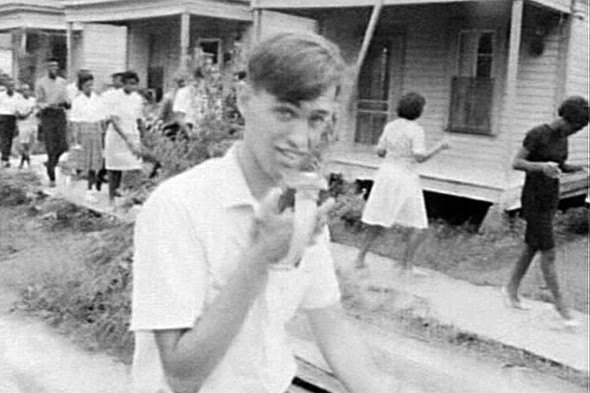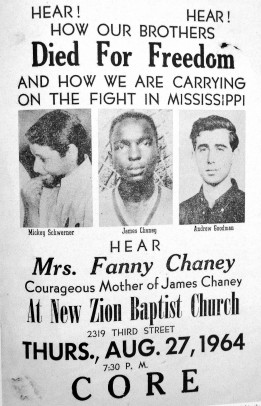The 20-year-olds who helped change history

Peter Orris volunteered for the Freedom Summer movement in 1964. “It was very scary,” says Orris, director of UIC’s Occupational Health Service Institute.
At age 18, Peter Orris put his life on the line to help change the course of history.
Orris was one of 1,000 students who volunteered for the Mississippi Freedom Summer project, a grassroots movement that went door-to-door registering black voters in the South. In the summer of 1964, political activists went against largely accepted norms and risked their lives for the civil rights movement.
“It was very scary. I’ll testify for that 40 years later,” said Orris, director of UIC’s Occupational Health Service Institute and professor in the School of Public Health. “But there were tasks to do.”
Orris is among the speakers who will celebrate the movement’s 50th anniversary Monday at “A Conversation with Veterans of Freedom Summer ’64: How Twenty-Year-Olds Changed America.” The panel discussion, sponsored by the Honors College and African-American Cultural Center, takes place from 4 to 6 p.m. in the Illinois Room, Student Center East.
“It’s an extraordinary history with extraordinary people,” said event moderator Natasha Barnes, associate professor of English and African American studies.
Young activists came south by bus to Mississippi, where black voter registration was dramatically low. Three disappeared — James Earl Chaney, 22, Andrew Goodman, 20, and Michael Schwerner, 24. Their bodies were discovered six weeks later. Police reported that they were beaten to death.
“The greatest challenge was the fear,” Orris said. “The question was, how were you able to go about the daily activities and not be entirely debilitated by the fear?”
Despite threats and harassment from police, residents and the Ku Klux Klan, volunteers stood their ground.
“At 18 years old, if I wasn’t going to risk my life, who else could we expect to be put in that kind of a situation?” Orris said.
Despite the dangers, Orris said he jumped at the chance to join the movement. His political activism ran deep.
“I was very much involved in the struggle against racism since high school,” he said. He volunteered for the national office of the 1963 March on Washington for Jobs and Freedom, picketed store outlets and participated in sit-in protests in support of racial integration.
Monday’s event will teach UIC students that young people can change the world, said Bette Bottoms, dean of the Honors College.
“The panel will teach us how young people’s actions paved the way for certain freedoms today, but will also remind us of the many struggles yet unresolved,” she said.
Bottoms and Barnes hope the discussion will inspire greater civic involvement on campus.
“I want young people to realize they’re powerful,” Barnes said.
Other panelists, all Freedom Summer activists, include Roy DeBerry, former vice president of Jackson State University and co-founder of the Hill County Project, an oral history project on the civil rights movement; Aviva Futorian, co-founder of Hill County Project and a human rights attorney; Jim Lewis, U.S. attorney for the Central District of Illinois; and Hollis Watkins, chairman of the Veterans of the Mississippi Civil Rights Movement.

